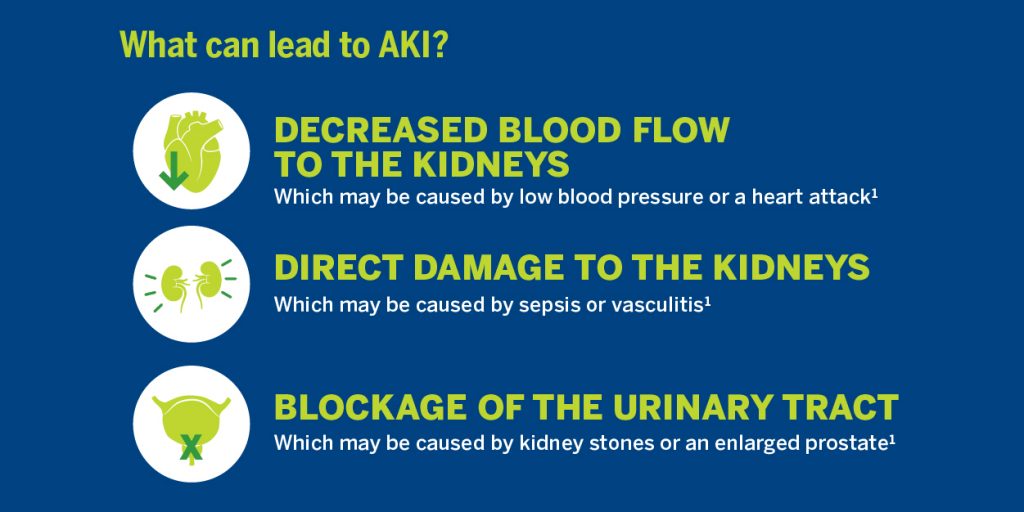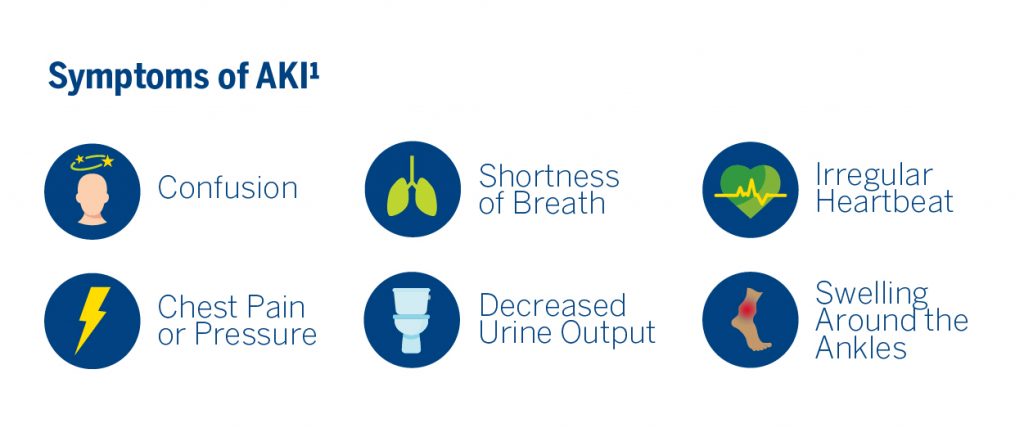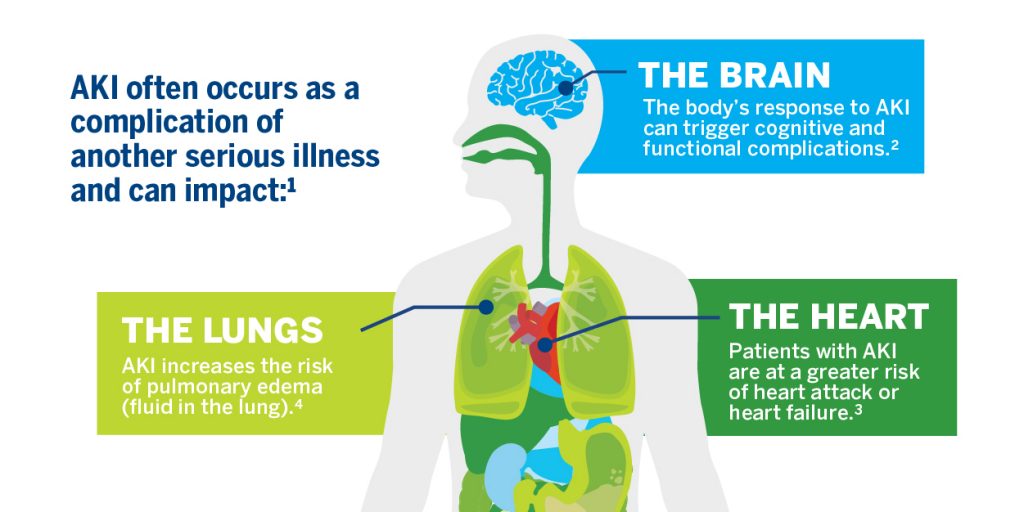By Mauricio Berdugo, MD, MPH, Director of Global Scientific & Medical Affairs at bioMérieux and Toni Rodriguez, RN, BSN, Associate Director of Global Medical Affairs at bioMérieux
Our kidneys are important and play a crucial role in our overall health and well-being. So, what happens when they are injured?

What is Acute Kidney Injury (AKI)?
Acute kidney injury is a rapid loss of kidney function that includes, but is not limited to, acute renal failure—a serious medical threat. AKI can occur within a few hours or days and causes a build-up of waste products in our blood. It also makes it difficult for our bodies to maintain the correct balance of fluids. The build-up of waste products and fluid imbalance can also impact the brain, heart, lungs, and other organs in the body. AKI is more common in patients who are already in the hospital or ICU, have an underlying illness that can compromise the kidneys, and are over the age of 65.
In high-income countries, AKI develops mainly in patients in hospitals. However, in low-and-middle income countries AKI often occurs in the community setting from acute illnesses. These illnesses are typically associated with symptoms such as diarrhea and dehydration, and infections such as malaria, venoms or poisons.
What causes AKI?
AKI most often occurs as a result of an underlying health issue or as a result of a major surgical procedure, which may affect the blood flow to the kidneys or blockage of the urinary tract. Some causes of decreased blood flow include low blood pressure, blood or fluid loss, heart attack, or heart failure. In some circumstances, the urinary tract can be obstructed by kidney stones, blood clots, problems in the bladder, or certain cancers, such as in the prostate or uterus.Certain types of infections, nephrotoxic medications, and medical conditions, such as vasculitis are, also among some of the causes of direct damage to the kidneys.

Sepsis, a condition that involves dysregulated response to an infection, is one of the most frequent causes of AKI, accounting for over 50% of AKI cases in intensive care units.
What are the symptoms of AKI?
Signs and symptoms of AKI differ depending on the underlying cause, but are generally inconsistent or occur once the disease is advanced. Generally, they include decreased urine output, chest pain, altered mental status, and/or swelling around the ankles and eyes. In some cases, AKI causes no symptoms and is only found through other tests done by the healthcare provider.

What are the effects of AKI?
AKI prevents healthy blood flow and it can have a profound impact on organs such as the brain, heart and lungs. AKI may result in complications that can impair brain function, which may lead to cognitive and functional complications. AKI also increases the risk of pulmonary edema (fluid in the lungs), and patients with AKI are at a high risk of heart attack or heart failure.

Treating AKI
Optimizing treatment and management of AKI is crucial to prevent further damage to the kidneys. Treatment goals are often to preserve and optimize kidney function, maintain the body’s appropriate acid levels and electrolyte balance, and minimize secondary organ damage. This can be done through a focus on proper hydration, adequate monitoring of their vital signs, and treatment that stabilizes the levels of minerals throughout the body. Dialysis may be required in severe cases of AKI, when kidney function has substantially decreased. During dialysis, a machine pumps blood out and back into our bodies through an artificial kidney. This artificial kidney removes waste and excess fluid from the blood.

AKI generally occurs in patients who are already in the hospital, however, it can occur outside of the hospital, and the treatment method depends on the underlying illness or injury. AKI is associated significantly with mortality; therefore, timely recognition and prompt treatment is critical.
Preventing AKI
Some 20-30% of AKI cases are thought to have been partially or fully preventable. As the elderly population that is most often impacted by AKI only continues to grow, it’s more crucial than ever to spread awareness about AKI recognition.

To learn more about how the kidneys affect our overall health, read our article, Why Healthy Kidneys are Essential to Your Life and Well-being. March is Nation Kidney Month, so take some time in the next few weeks to learn about how our kidneys work and why it’s important to keep them healthy.
Download the Full AKI Facts Infographic
Opinions expressed in this article are not necessarily those of bioMérieux, Inc.
This information is not intended to be a substitute for professional medical advice, diagnosis, or treatment. Always seek the advice of your physician or other qualified health provider with any questions you may have regarding a medical condition, diagnosis, or treatment.




What happens when you have one kidney remove can you live with one kidney?
How can what stage of kidney disease that you could have. I want to know because I have the kidney disease. Please let me know because I am worried